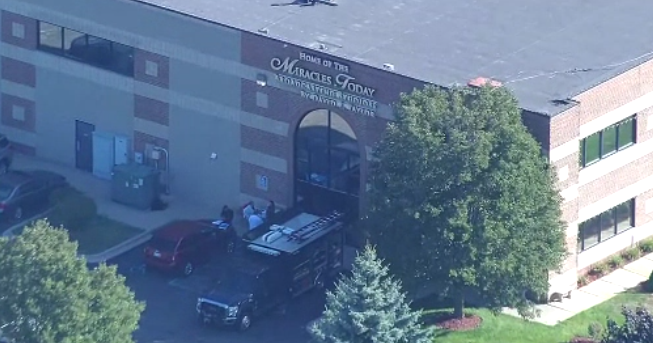Potential "bribery-for-pardon" scheme under investigation by the Justice Department
The Justice Department is investigating a bribery scheme that directed money to the White House or used political contributions in exchange for a presidential pardon, according to court documents released Tuesday.
The District Court in Washington, D.C., released 20 pages of heavily redacted documents that do not identify who is being investigated nor the timing of the alleged scheme.
The government's motion was initially submitted to Chief Judge Beryl A. Howell under seal, in order to obtain permission to review certain attorney-client communications prosecutors believed proved potential "criminal activity." A filter team working on behalf of the government was going through several terabytes of data they had seized from over 50 electronic devices, such as iPhones, iPads, laptops, thumb drives and hard drives.
Prosecutors asked the court for permission to review email communications they believe revealed a "bribery conspiracy scheme in which [redacted] would offer a substantial political contribution in exchange for a presidential pardon or reprieve of sentence for [redacted]."
On Tuesday evening, after the release of the court document, an official with the Justice Department sought to tamp down speculation about who might be targeted in the probe. "No government official was or is currently a subject or target of the investigation disclosed in this filing," the official said.
The documents released Tuesday include Howell's order, dated August 28, which permitted the Justice Department to review communications uncovered as part of a bribery-for-pardon scheme.
"The political strategy to obtain a presidential pardon was 'parallel' to and distinct from [redacted]'s role as an attorney-advocate for [redacted]," Howell wrote in the order.
The documents indicate that the unidentified individual was facing a prison sentence and would be surrendering to the Bureau of Prisons. The government points out that no communication was found connecting the defense counsel to the unknown individual in the months prior to "[redacted]'s surrender to BOP custody."
The investigation also encompassed unidentified individuals who "acted as lobbyists to Senior White House officials" to assist in securing the pardon.
Ultimately, Howell permitted the government to review certain email communications involving the unknown parties, finding, "The investigative team may therefore review and use any such communications to confront subjects and targets of this investigation." However, certain communications that do not include a specific individual and appear to be legitimate legal advice unrelated to the alleged scheme will be withheld.
While the release by the court indicates the investigation was underway during the summer, it is unclear whether the allegations have yet or ever will be brought before a grand jury. The document includes a statement by the government, which last week opposed publicly releasing the months-old request, saying it "identifies both individuals and conduct that have not been charged by the grand jury." However, the judge asked them to come up with a redacted version of the order to publicly release her decision. The case's docket remains under seal.
A Justice Department spokesperson said the department was looking into the matter. The White House declined to comment.
Paulina Smolinski contributed to this report.



